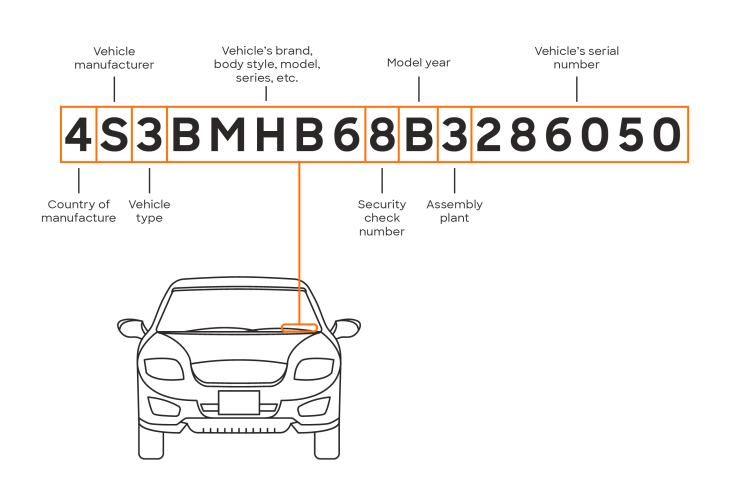In the world of cars, recalls are a big deal. After all, we rely on our vehicles to safely transport us and our loved ones every day. So when a car’s manufacturer determines that a specific part of the vehicle or its equipment poses a safety risk to drivers and issues a recall, it’s important to take the necessary action.
Your car’s manufacturer has an obligation to notify you if your car is affected by a recall, so as long as your registration is up-to-date, you’ll get a recall notice in the mail.
You can also check online by entering your vehicle identification number (VIN) into a recall-lookup tool. The National Highway Traffic Safety Administration, the federal agency dedicated to vehicle safety standards, has an online VIN recall look-up tool that’s easy for drivers to use.
Explore related topics
What is a recall?
A recall happens when a vehicle’s manufacturer, or the NHTSA, concludes that a part of that vehicle has a safety defect and poses a safety risk.
Recalls can start as complaints — if a number of drivers report having the same issue with the same make and model of car, the NHTSA will open an investigation, which can lead to the agency telling a car’s manufacturer to issue a recall. But more often, the manufacturer will decide on their own to issue a recall, without the NHTSA stepping in.
Either way, you’ll get a letter in the mail within 60 days of a recall if your vehicle is affected, assuming your vehicle registration is up to date with your current address. You can also check online to see if your car has been affected by a recent recall.
How to check for a recall on your car
As we mentioned above, your car’s manufacturer should notify you if your car is affected by a recall. But if you think you may have missed it, you can check online for yourself. Just follow these steps:
1. Locate your VIN
Your VIN identifies your specific vehicle by the make and model and your serial number. You can use it to see whether or not there’s a recall on your vehicle. If you’re not sure where to find your car’s VIN, check the driver’s side of the dashboard, right where the dash meets the windshield. It contains 17 numbers and letters, and should look something like this:

2. Check the NHTSA database
The NHTSA has an online VIN recall look-up tool that’s easy for drivers to use. All you need to do is plug your VIN into the search and it will tell you if you have any unrepaired recalls on your car. If there was already a recall on your vehicle but it was fixed, it will no longer show up.
If there’s recently been a recall involving your car but you search for your VIN and there’s no recall on your specific vehicle, be sure to check again in a few days, just to make sure your vehicle isn’t affected.
3. Schedule an appointment at a dealership
If there’s an open recall on your vehicle, the recall letter you get in the mail will likely direct you to a local dealership where you can take your car for a repair or replacement. Simply call to schedule an appointment.
The dealership should fix the recall issue free of charge, and the manufacturer will foot the bill. (An exception to this is if your car is over a certain number of years old, but oftentimes even if you have an old car, the manufacturer will still pay for a recall).
If you try to take your car to a dealership to deal with the recall issue and they refuse to help you, you should contact the manufacturer to let them know, or file a complaint with the NHTSA. Remember, if there’s a recall on your car, it’s the manufacturer’s responsibility to deal with the issue and make sure your car is safe to drive again.
Is it illegal to sell a car with a recall?
As long as a car is designated as “used,” it’s legal to sell it with an open recall. The seller should disclose the open recall, and if you choose to buy that used car, it would be up to you to go through the steps of having it fixed. However, a dealership can’t legally sell you a new car with an open recall — it has to be fixed before a new car with a recall can be sold.
If you’re buying a used car, do a quick check on the VIN to make sure there aren’t any unrepaired recalls on that car. But remember that any recalls that were issued and have been fixed may not show up in a search.
Does a recall affect car insurance?
If your car has been recalled and you have followed all the steps necessary to get it fixed and back in working order, it will have no effect on your insurance premium. You also don’t need to involve your insurance in the recall repair, because the manufacturer will pay for the recall issue to be fixed. You may still want to let your insurance provider know that you’ve dealt with the issue, however.
If you ignore the recall and get into an accident because of the recalled part or problem, then you might see your rates go up. Your premiums are calculated, in part, based on how safe and responsible a driver you are, and an unfixed recall that leads to an accident could have a negative impact on your car insurance rates.
Ignoring a recall can also put you and your passengers in danger, so make sure to take your car in for a fix as soon as you can after a recall is announced.

